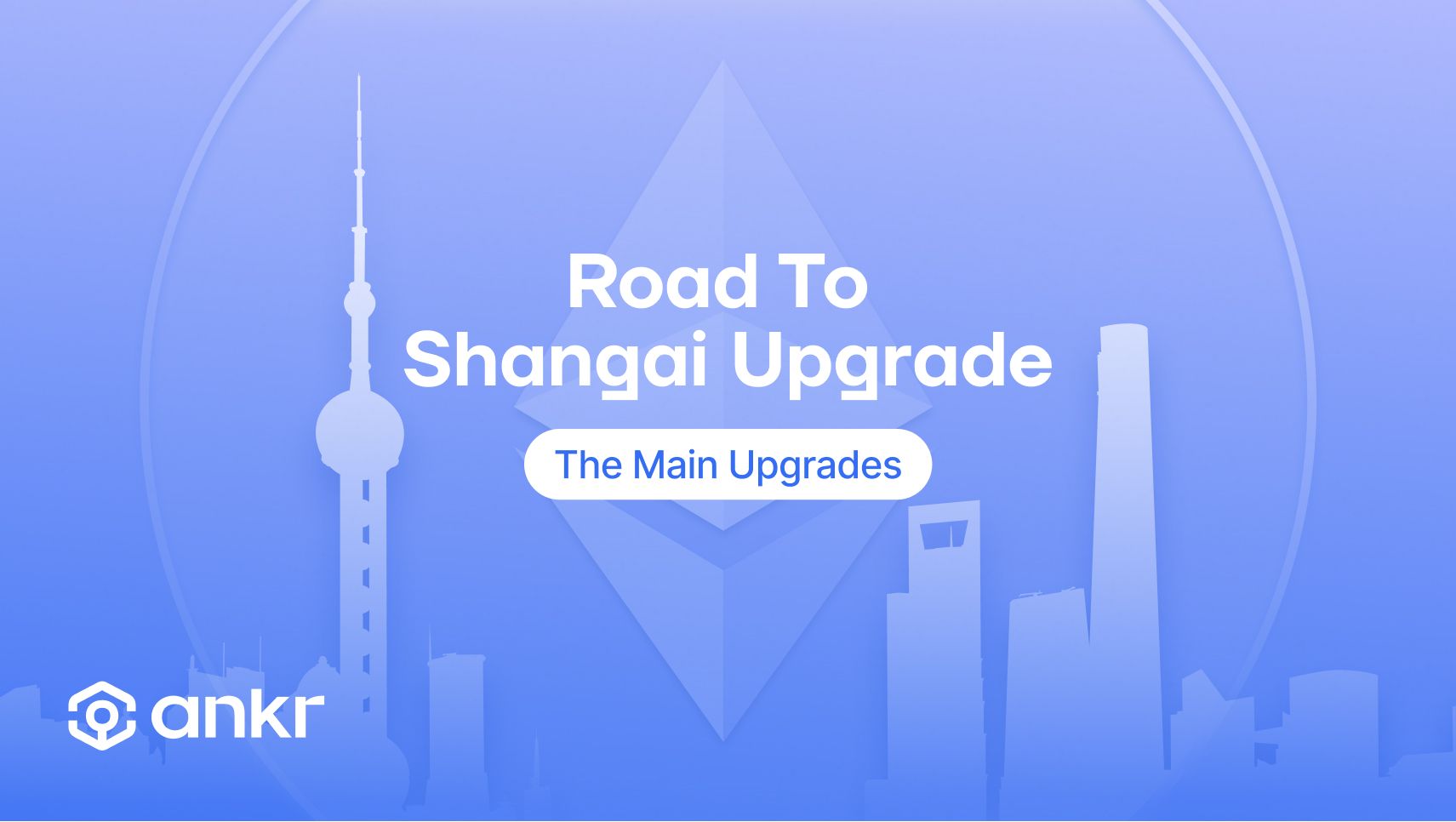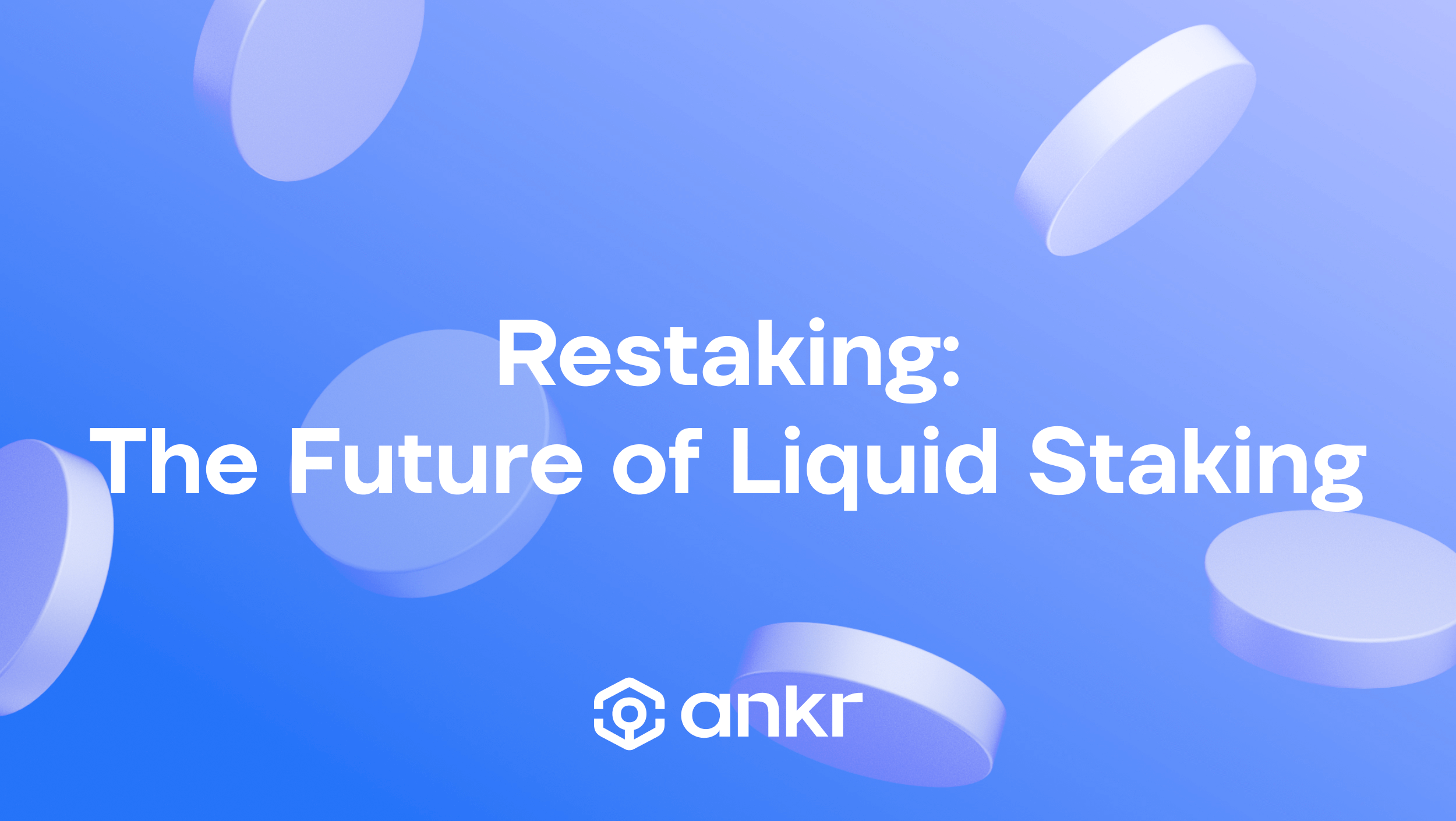Unlocking ETH 2nd yield Layer: Ankr will become an EigenLayer node Operator

Diogo Costa
December 1, 2023
3 min read
We are excited to announce that Ankr will become an EigenLayer node operator. Upon announcing the integration of ankrETH, as a Liquid Staking token usable on the ecosystem, we are proud to announce that Ankr will become a member of the restaking collective. As node operators, we enable stakers to delegate their tokens to us, allowing us to provide a range of services built upon EigenLayer.
TL;DR:
EigenLayer will enable the creation of Ethereum’s Decentralized Trust marketplace by introducing restaking; Restaking will expand Ethereum’s trust network to off-chain activities, eliminating protocols’ necessity of creating their own validator network; Ankr will step into this ecosystem by becoming an operator;
What is EigenLayer?
EigenLayer is a protocol developed on top of Ethereum that introduces the concept of 'restaking,' which is a new approach to enhance and expand cryptoeconomic security. Restaking allows the reuse of ETH, enabling users who have staked their ETH, either directly or through a liquid staking token (LST), to engage with EigenLayer's smart contracts, thereby extending security measures to more applications within the network and, in turn, earn additional rewards.
The process of restaking allows Ethereum stakers to contribute to the security of multiple services at once. This approach of using ETH for multiple services not only lowers the investment needed from a staker but also enhances the trust and reliability of these individual services.
The Role of EigenLayer in Enhancing Blockchain Security
Traditionally, anyone developing a new service on Ethereum that requires interaction with off-chain data has to create a separate trust network to ensure the security of the system itself. To address this issue, which limits the network permissionless innovation, EigenLayer allows any service, regardless of its technical setup, to access the collective security provided by Ethereum stakers.
To do so, EigenLayer proposed a framework that allows users to restake their ETH or ETH LSTs with operators, and those will in turn act as validators for "Actively Validated Services" (AVSs), which are systems that require their own validation semantics for verification of off-chain activities.
By removing the constraints of building their own validator network to secure the reliability of off-chain transactions, EigenLayer enables developers to focus on the core of what they are building and disregard all the wasted time building their own security network.
Some AVS examples are systems like fast finality layers, data availability layers, virtual machines, and networks for various functions such as oracles, keepers, and AI training.
Ankr's Role as a Node Operator in the EigenLayer Ecosystem
Ankr is set to take on the role of a node operator within the EigenLayer framework. A node operator in this context is responsible for managing and running the software that operates on EigenLayer. These operators can be individuals or organizations, and they have the option to be stakers as well.
As a node operator, Ankr will register with EigenLayer, enabling ETH stakers to delegate their staked assets, which could be either native ETH or Liquid Staking Tokens (LSTs), to Ankr. Once registered, Ankr will opt to provide a variety of services to Actively Validated Services (AVSs), looking to enhance the security and functionality of the EigenLayer protocol, which at the end of the day, will create an easier and less complex paradigm to foster innovation.
Ankr's role as an EigenLayer node operator is to become a relevant member of a protocol that will diminish developing barriers and foster innovation. From Ankr's inception, until now, the goal has always been to provide tools for easier onboarding. By becoming part of the restaking syndicate, we are fulfilling our mission, helping to eliminate one major barrier in the industry.
Similar articles.

Liquid Staking Upgrades: Responding to the Shanghai Upgrade

Ethan Nelson
April 10, 2023

In the near future, Ankr is set to launch a series of updates that will significantly enhance the user experience of liquid staked...

Restaking: The Future of Liquid Staking

Diogo Costa
September 15, 2023
Liquid staking has been a raging utility in the blockchain sphere for quite some time now, and rightfully so. Users are flocking to liquid staking...



